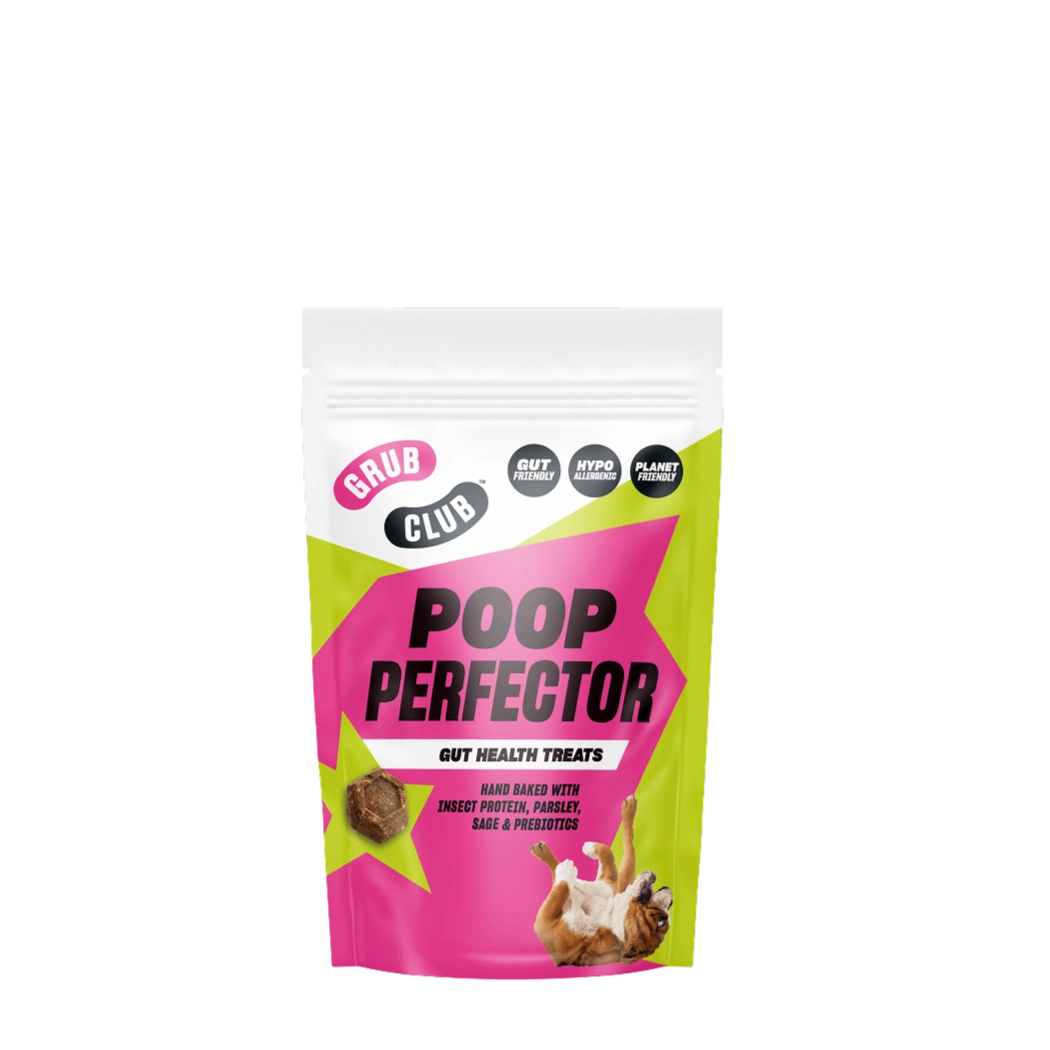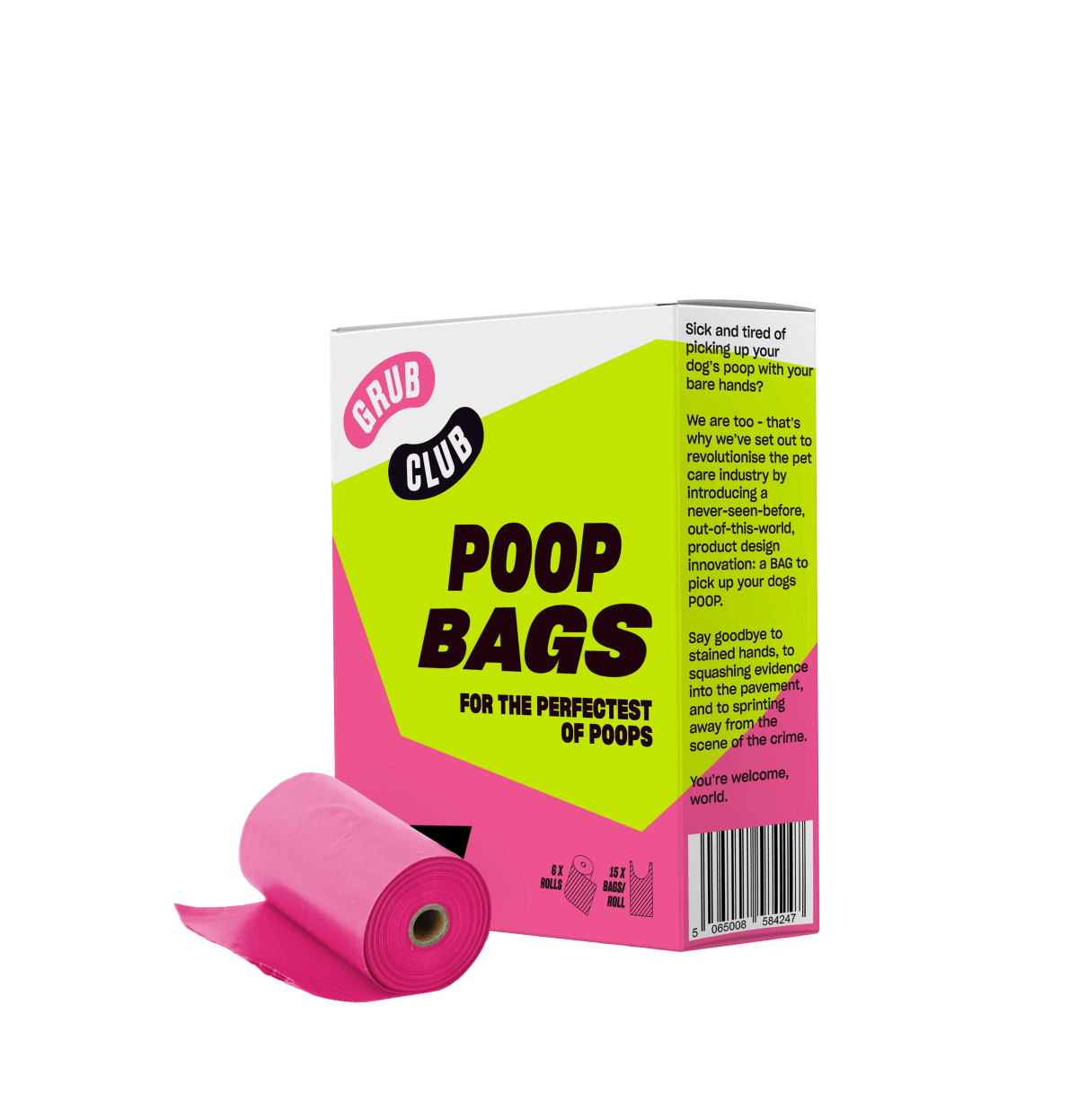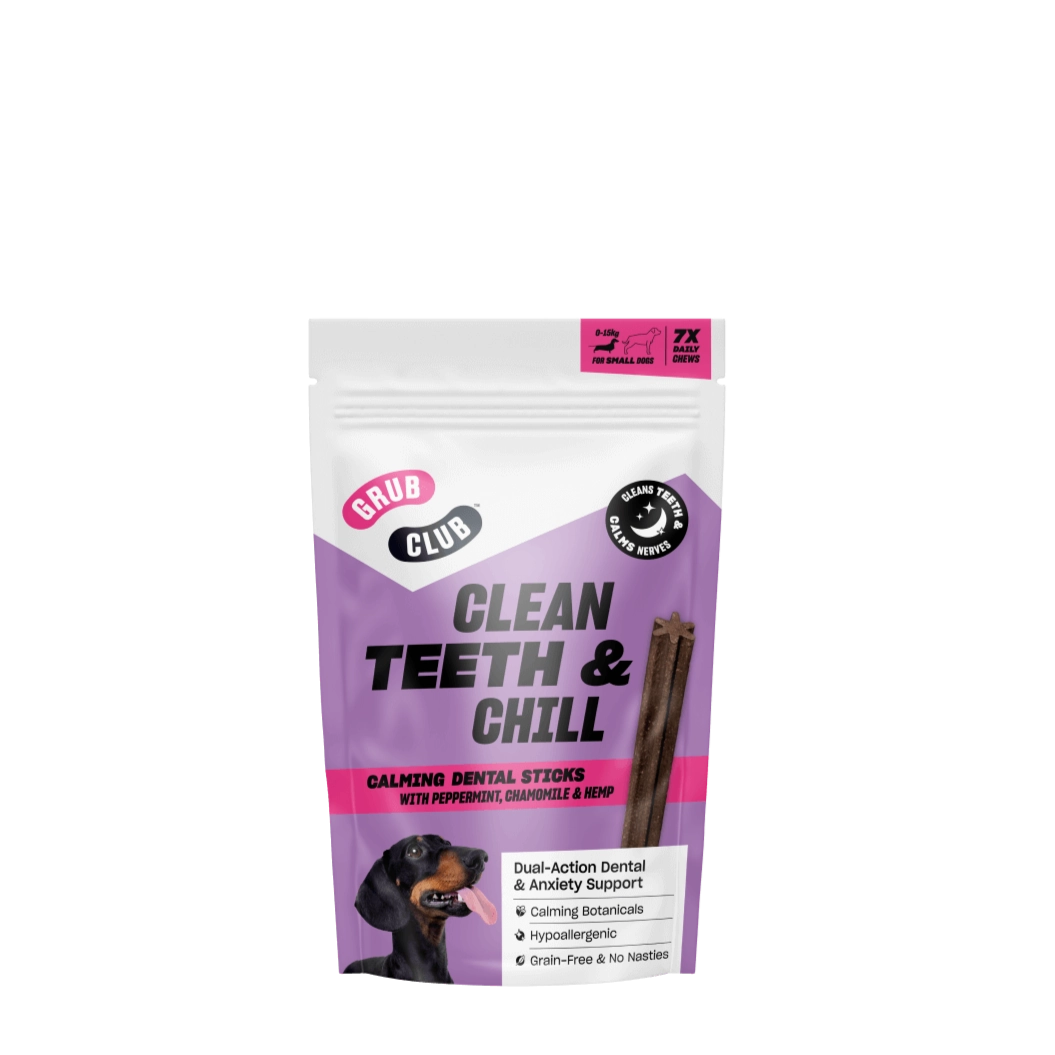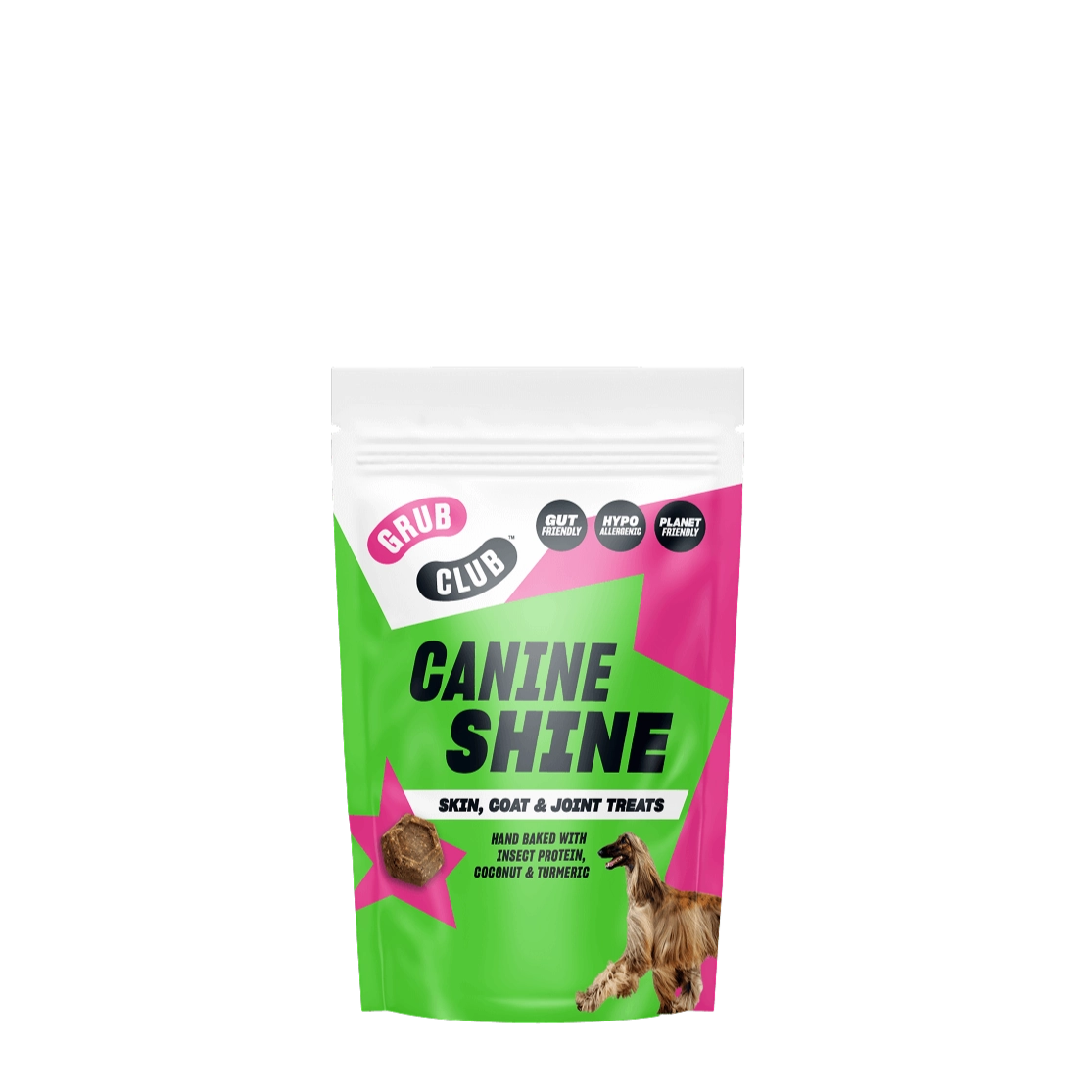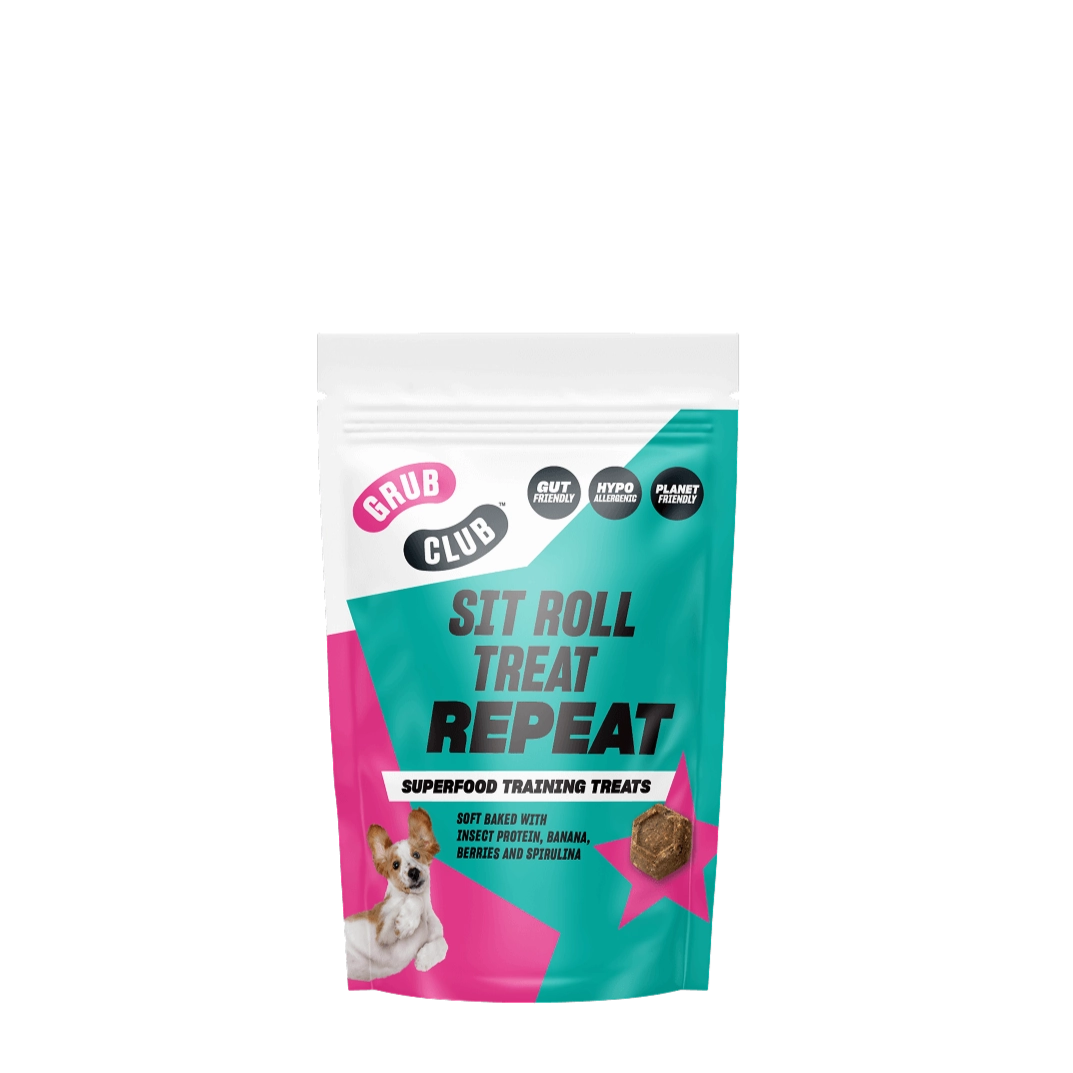POOP PERFECTOR
Prebiotic Gut-Health Treats
1 Pack
FREE UK Delivery on orders above £49.
You have £0.00 in your cart, spend £49.00 more and get free shipping.
1 Pack
60 Scoops
72 Bags
1 Pack (7 Sticks)
1 Pack
1 Pack
Or continue without a name
CheckoutAlongside digestive problems such as bloating, runny poops and stinky farts, itchy skin is one of the biggest symptoms of food allergies in dogs.
We share our top tips on the dog food to devour or avoid if your dog is suffering from sensitive skin.
In addition to the digestive problems we mentioned earlier, food allergy symptoms also include:

Just like us humans, every dog is unique and in a very few cases, there may be dogs allergic to certain ingredients outside of this list such as sweet potato or pea protein. But the most common dog food allergens are:
The best way to identify what's causing the food allergy is through an elimination diet. Before you start, write down a complete diet history (a list of every single food item that regularly passes your dog's lips).
Next, you'll need to introduce your dog to a brand new diet that doesn't contain any of the food items on the diet history list.
Find out whether your dog is allergic to their food here.
Whilst we can't cure your itchy skin or smelly toots, hypoallergenic dog food could be a firm solution for your canine friends (excuse the pun).
Hypoallergenic dog food typically contains none of the common allergens listed above and is also 'grain-free'.
Many dog owners switch their dogs to a raw food diet when struggling with food allergies - particularly allergies to grains. A raw food diet is primarily made up of uncooked meat, edible bones, and organs.
A raw food diet is not without its cons for both dogs and their owners and as we previously mentioned, beef, chicken and lamb are three of the most common allergy triggers for dogs. So, what next?

Cue insect protein... Insect protein is naturally hypoallergenic for dogs yet it contains twice as much protein per 100g compared to beef. Winner, winner, we're eating bugs for dinner!
At Grub Club, our nutritionally complete dog food All-Day Buffet, is made from insect protein and is also grain-free. We recommend purchasing a 1.5kg bag to test for skin allergies.

Ah, the trials and tribulations of pet ownership. When your dog won't stop scratching, sometimes you'd simply like to ask: 'What's up dude?'.
Whilst we don't have the pleasure of speaking to animals, we can share a few other common themes that will help you to identify the source of the itching.
Just like us humans, dogs can often be allergic to things inside and outside of the home.
Look out for common allergens in cleaning products and soaps (Formaldehyde, Ammonia, Sodium lauryl sulphate, D-limonene and sodium hypochlorite). Make sure you're regularly dusting and putting the hoover around as dust mites can also cause itching in dogs.
Top tip: try sticking your dog's soft toys in the freezer for 24 hours as cold temperatures kill dust mites.
Outside of the home, pollen and grass can also irritate your dog's skin. Avoid walking through long grass and fields and stick to pavements during late spring/early summer.
We start itching at the very thought of fleas *shudders* but unfortunately they can be very common in dogs.
If your pooch is itching, check their flea hotspots (tummies, tails and necks) for tiny dark droppings or white eggs.
Top tip: If you find fleas on your dog, burn down your house and move to a different town.
Just kidding (although we've certainly considered it). You can find plenty of oral/topical treatments on the market alongside washing your dog's bedding on a hot wash and deep cleaning your home and furnishings.
Symptoms of skin infections in dogs include:
Skin infections are rarely spread through dog-to-dog contact and are most likely picked up in outdoors environments such as swimming in ponds and lakes, running through fields and rolling in mud.
We recommended speaking to your vet who can diagnose the infection and treat accordingly.
Ready to transition your dog to a hypoallergenic diet? Try it today.
